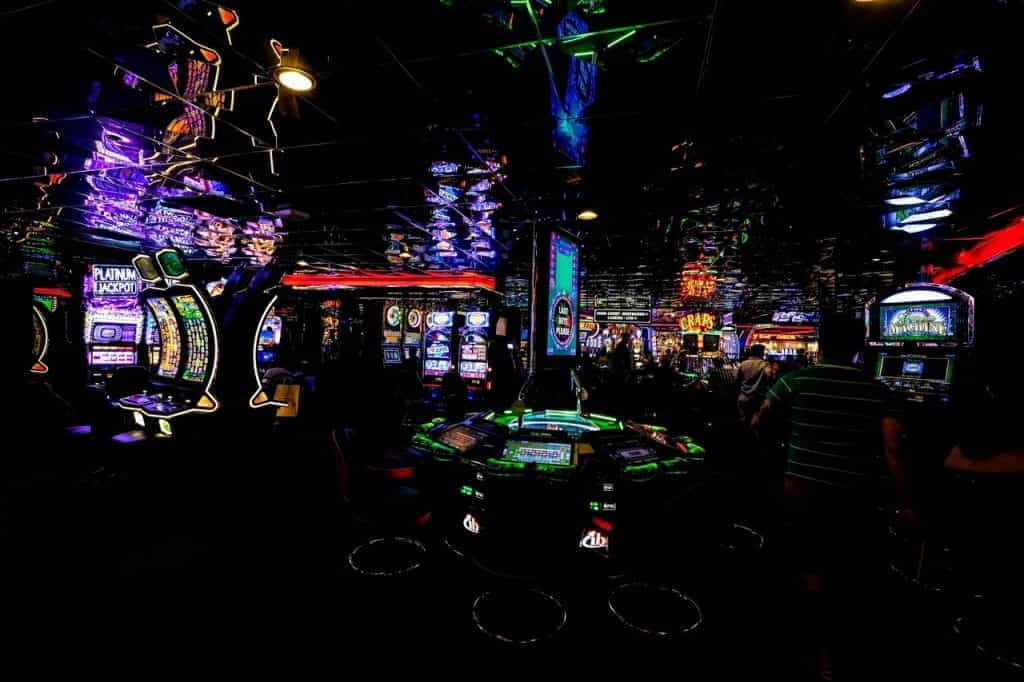Washington Seeks to Redefine Illegal Gambling
Two bipartisan bills have been introduced in the Washington state legislature with the hope to protect game developers from charges of illegal gambling. If either is successful, the definition of illegal gambling games would be amended to exclude video games that are played for entertainment purposes.

Washington state is seeking to change its definitions to what constitutes illegal gambling, as the nation addresses concerns around online social gaming, video game loot boxes and arcade-style gambling machines. ©Francesco Ungaro/Unsplash
Instead of its current definition, the law would now read: “For purposes of this section, ‘illegal gambling games’ does not include online games of chance when played solely for entertainment purposes with virtual items if such virtual items may be used only for gameplay and may not be, per the terms of service of the game, transferred, exchanged, or redeemed for money or property.”
The news will no doubt be welcomed by Washington state’s major game developers, who have recently faced an onslaught of civil suit litigation that have accused them of providing illegal gambling. Last year, a lobby group was created with the aim of protecting the industry from these suits.
One such gaming developer is Big Fish Game, which was sued in 2015 over its Big Fish Casino title that required players to purchase chips to spend on virtual gambling games but provided no chance to cash out winnings. In 2018, a Federal Appeals Court ruled that “Big Fish Casino’s virtual chips are a ‘thing of value,’” and therefore, “Big Fish Casino constitutes illegal gambling under Washington law.”
While the case has yet to be determined due to a pending outcome of a similar lawsuit against another online service Huuuge Casino, bills HB 2720 and SB 6568 may prevent these companies from paying damages as only games that allow players to withdraw money from the games will be classed as illegal.
Though neither bill specifically mentions the Big Fish Casino or Huuuge Casino cases, they do refer to “recently filed class-action lawsuits” that may have a negative effect on local game developers.
“These lawsuits, if decided adversely to the game companies, pose a substantial financial risk for video game development in this state. The further possibility exists that companies based in Washington will move their base of operations to other states, which would remove thousands of jobs from the state and a currently incalculable, but materially significant, amount of tax dollars.”– Washington Legislators, Bill HB 2720
Are Loot Boxes Protected?
The aforementioned lobby group, Game On WA is co-chaired by former Washington governor Gary Locke, Washington Technology Industry Association CEO Michael Schutzler and Kristina Hudson, executive director of the OneRedmond economic development group.
While it was created to protect creators of the so-called “social games”, the changed definition is likely to protect games companies from litigation against offering loot boxes to users too. In the UK, there has been a growing call to outlaw the inclusion of loot boxes to protect children from gambling, while Belgium has already banned them.
Many game developers argue that loot boxes and in-game microtransactions are only for entertainment purposes and don’t have any real value. In contrast, many gamers have made the connection between loot boxes and gambling and find their inclusion to be both predatory and limiting to gameplay.
However, the issue of loot boxes is not the only recent gaming feature development to challenge the definition of what constitutes gambling. Recently, a slew of arcade-style video games has irked critics for their similarity to slot machines, as players can put as much as $100 in the machines and win cash based on the outcome of gameplay.
The machines have become controversial due to their inclusion in places like convenience stores and restaurants, and while critics have labeled them as thinly-veiled gambling devices, games’ manufacturers have correctly highlighted that they are games of skill as opposed to games of chance.
While there has been little talk of regulating the games in Washington state, other states like Virginia and Washington D.C. have sought to regulate them before a national decision is made. This may include limiting gameplay to venues with liquor licenses and to players over the legal gambling age.
For now, Washington state lawmakers are yet to decide on the outcome of both introduced bills, although HB 2720 is scheduled for a public hearing on January 28.



